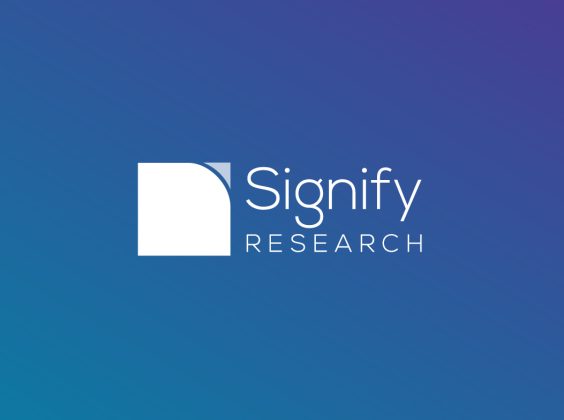
Written by

14th April 2021 – Written by Kelly Patrick – The clinical care market has seen a significant shake up in the last year, with mass demand for devices that are used for the diagnosis and care management of COVID-19 patients. In the previous years, the market was saturated in most developed regions, with little opportunity to displace leading vendors from the top spots. However, the exceptional demand coupled with supply issues created an opportunity for some vendors to take market share from entrenched competitors and for new vendors to fill the gaps.
Brand standardisation was an ongoing trend within the clinical care market for some time; by sticking to one brand, purchasers can ensure ease of device integration and staff training in addition to significant cost savings. The prevalence of larger group purchasing organisations, not only in the US but also in other countries, has also increased the number of larger bundle deals from one supplier. Spring forward to 2020 and this all changed. Supply of devices was initially restricted not only by the national lockdowns in most countries, but also by the lack of critical components required for their manufacture.
Signify Research has assessed the demand for clinical care devices in its recently published report ‘Market Impact Report – Clinical Care Devices – 2021‘. The analysis provides an overview of the impact of the COVID-19 pandemic on market growth, in addition to the supplier mix, both globally and sub-regionally for the core clinical care devices.
The report found that the ventilator market saw most surge in demand; Signify Research estimated that the ventilator market increased from $3 billion in 2019 to $8.5 billion in 2020. Surges in demand and local government mandates meant that suppliers had to focus on their local markets before fulfilling orders elsewhere. Governmental orders were less influenced by end-user choice and were fulfilled by those that could supply the most critical devices. New vendors appeared on the market to help fulfil the massive gap in demand from local players. The supplier mix to the global ventilator market was subsequently very different in 2020 compared to previous years.
The dominance of some established ventilator vendors was softened and newer vendors, specifically in the US, grew significantly and took market share. The most notable newcomer was General Motors who partnered with VenTec Life to fulfil a significant order by the United States Department of Health and Human Services (HHS) to help with their large stockpile. Some of the established US-based vendors also gained market share. GE Healthcare gained just over 13% revenue share of the North American market in 2020 and Zoll Medical gained just over 10% due to their contribution to the HHS stockpile. GE Healthcare was also able to uplift its presence in other regions as demand was fulfilled in the US, gaining just under 6% revenue share globally in 2020.
The patient monitoring market also saw a sizeable uplift in demand to ensure wider provision of monitoring solutions, not only in the high acuity settings, but also in low-acuity settings. However, fewer local market restrictions were in place to halt the sale of devices globally and subsequently there was less impact on the supplier mix at a global level. Hospitals in the US also have much wider monitoring facilities due to the movement toward the continuum of care, with continuous monitoring provided at every level of acuity. In other global regions, the uplift in demand for patient monitoring in 2020 was much higher, specifically in Europe. With their focus on high-acuity monitoring provision, GE Healthcare gained market share, in addition to the Asian vendors Mindray and Edan.
According to the report’s author, Signify Research analyst Kelly Patrick, “The clinical care market saw a significant change in 2020. Supplier mix was altered in many of the developed markets with new vendors appearing and existing suppliers having to compete aggressively. 2021 will result in a rebalance of the market supply but will not come without obstacles for the more dominant suppliers”.
GE Healthcare’s dominant global presence in other core clinical markets, including anaesthesia and diagnostic cardiology, also aided the company to increase its share of the global clinical care device market overall. Despite holding a smaller share than Philips in the global patient monitoring market, GE’s revenue share gains in other markets resulted in the company maintaining second position overall. Philips decided to divest its anaesthesia business line in 2017, focusing on its other clinical care solutions. However, with the addition of BioTelemetry Inc, to its product line up, moving forward the company is expected to invest more into its remote capabilities both in cardiac and patient monitoring on a global basis.
Patrick concluded “Philips and GE Healthcare have taken slightly different strategies toward care provision within the clinical care space. However, the COVID-19 pandemic is likely to refocus efforts to develop solutions to a continually evolving patient population. Both companies are clear that solutions that enable more flexible care provision will be in most demand”.
About the Report
“Market Impact Report – Clinical Care Devices Report – 2021” provides a data-centric and global outlook on the impact of COVID-19 on the major clinical care devices. The report blends primary data collected from in-depth interviews with healthcare professionals and technology vendors, to provide a balanced and objective view of the market.
About Signify Research
Signify Research is an independent supplier of market intelligence and consultancy to the global healthcare technology industry. Our major coverage areas are Healthcare IT, Medical Imaging and Digital Health. Our clients include technology vendors, healthcare providers and payers, management consultants and investors. Signify Research is headquartered in Cranfield, UK. To find out more: enquiries@signifyresearch.net, T: +44 (0) 1234 436 150, www.signifyresearch.net
More Information
To find out more:
E: enquiries@signifyresearch.net,
T: +44 (0) 1234 436 150

